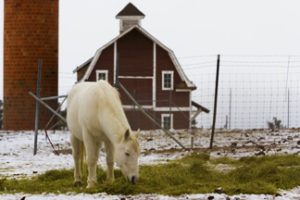The smart automobile owner will be sure to get his or her car ready for winter BEFORE the cold arrives, but what about a horse owner? The horse’s condition is constantly changing, however, unlike humans they are unable to tell us what’s wrong. By ensuring that the horse has adequate forage and water, keeping them blanketed for the harsh cold and supplementing with additional fats, your horse will not only survive the winter weather we have coming, but will thrive. Read further as Springtime outlines 5 tips to help winterize your horse.
1) Assess body weight
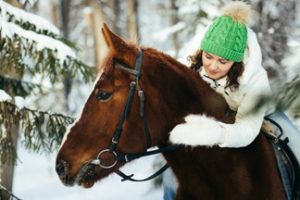
Be sure to assess your horse for good body condition prior to the cold weather. A horse with an extra layer of fat is going to be more comfortable in winter than a horse that is thin. That extra layer will not only keep them insulated, but will provide energy during the cold months. By checking your horse now for his body condition, you can assess how much weight needs to be put on. Putting weight on a horse in a warmer climate is much easier than in a colder one!
2) Increase forage and feed
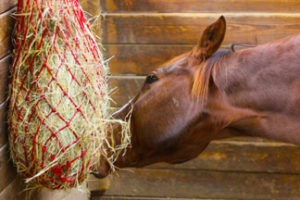
To maintain a good body condition, increasing your horses’ feed may become necessary as the days get colder. Look for a feed with a higher fat level to increase the calorie intake, but remember that any change to the diet should be done gradually to avoid gastrointestinal upset. Hay should also be increased during the winter months. Try to stock up early to avoid lack of stock as winter progresses, and try to find the best quality hay possible. Horses should be eating 1% to 3% of their body weight in hay each day, and while hay provides added calories, it is also a great preventative against impaction colic. Bee Pollen can also be added to support digestive health and to enable your horse to get the necessary nutrients he or she would typically get from grass.
3) Ensure an adequate water source
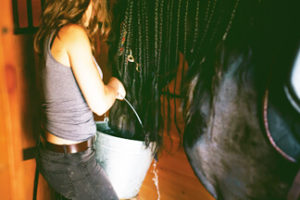
Frozen water buckets are useless for a thirsty horse. Make sure stall buckets have an attached heater for cold weather months and that there is always a fresh supply. Also, check that heaters are in working order before using at the start of the season. Check that electrical wires are protected with chew-proof material, such as PVC pipe, and provide free-choice, trace-mineralized salt to encourage your horse to drink throughout winter. With all of the extra forage your horses will be taking in, adequate water intake is especially important in preventing colic. If your horse is less than interested in his salt block, try supplementing minerals and electrolytes to keep your horse balanced for the cold!
4) Supplement with additional fats
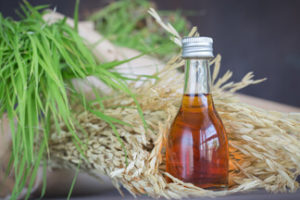
Supplementing with dietary fats is essential in increasing the energy density of grains and pellets. Dietary fats (oils) will also help with weight gain and maintaining a luxurious coat for added warmth. Rice bran oil is a nutritious oil that is an excellent addition. It contains gamma oryzanol and rice bran, which contain Omega-3s. Oils can also support healthy hooves and gastrointestinal health!
5) Blanket maintenance
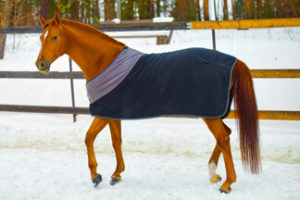
Blankets are the number-one option as the winter chill comes out. For most of us, we have kept those heavy winter blankets stored for the summer and now is the time to get them out and inspect them to make sure there is no mildew, holes, fit issues, or broken pieces. There’s nothing worse than experiencing the first cold evening and having to put a broken blanket on your horse, or worse, forcing them to go without a blanket because nothing fits. Now is the time to check those blankets and let them air out before Jack Frost comes to visit your barn!

